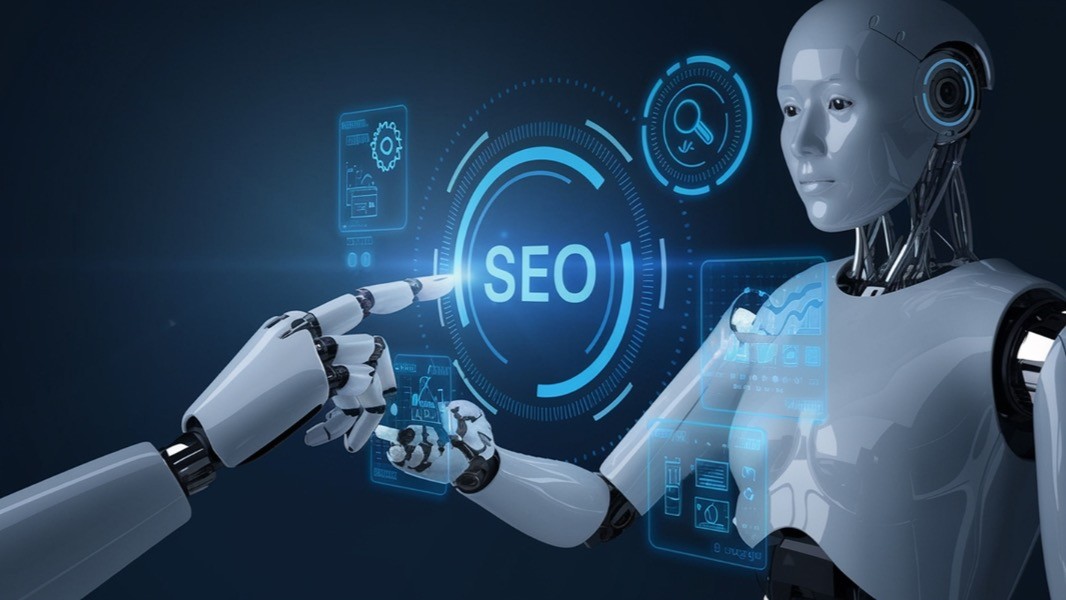How AI and Machine Learning Can Transform Your SEO Strategy in 2025
It was a typical afternoon at a digital marketing agency when the team gathered to review their SEO campaign results.

While their local traffic had steadily improved, their international SEO performance was still lagging. The bounce rate from users in other regions was high, and their conversion rate was disappointingly low.
Frustration began to build as they reviewed the data. Despite implementing all the best practices in SEO, it felt like something was still missing.
“We’ve been focusing on content optimization, keywords, and backlinks, but we’re still not seeing the results we want,” said the project manager, glancing through the performance report. “We need to step up our game.”
After a brief pause, a team member, who had been following the latest trends in SEO, suggested, “What if we took a deeper dive into AI and machine learning? I’ve read how these technologies are making waves in SEO. Maybe they can help us optimize better and make smarter decisions.”
The room grew quiet. AI and machine learning for SEO? Could they really make a difference?
“Let’s explore it,” the project manager said, intrigued. “It could be just the change we need.”
The Discovery: Understanding AI and Machine Learning in SEO
The team quickly began researching how AI and machine learning could enhance their SEO efforts. They discovered that AI isn't just about automating tasks; it’s about analyzing massive amounts of data to uncover insights that humans might miss. On the other hand, machine learning helps improve these processes over time, constantly learning and optimizing SEO strategies based on real-time data.
It became clear: AI-powered tools and machine learning algorithms could help them make smarter, more data-driven decisions that were previously out of reach with traditional methods.
The Experiment: Using AI for Advanced Keyword Research
Eager to dive in, the team decided to start with AI-powered keyword research. Traditional keyword research had always been part of their SEO strategy, but they were often guessing which keywords would perform well or relying on outdated data.
With AI tools designed for keyword research, they could now quickly analyze vast amounts of data, identify long-tail keywords with high conversion potential, and predict which keywords were likely to gain traction.
The results were almost immediate. Keywords that were previously overlooked suddenly showed high search intent, and AI tools suggested related terms that were gaining popularity.
“This is incredible,” said the team lead, watching as the tool identified emerging trends in their industry. “We’re no longer guessing. We’re using data to guide our strategy.”
The Next Step: Content Optimization Using Machine Learning
A few weeks later, the team moved on to content optimization. They learned that machine learning could be applied to optimize not just the keywords, but also how their content aligned with user intent. They integrated machine learning tools that analyzed top-ranking pages for targeted keywords, providing insights into the content structure, readability, and engagement metrics.
By using these insights, the team adjusted their existing content to better align with Google’s ranking factors, making sure it was both relevant and optimized for user queries.
“We’re optimizing based on real-time data,” said one team member as they worked through the content. “This is a whole new level of precision in SEO.”
The Shift: Automating SEO Tasks and Predicting Future Trends
As the team integrated machine learning, they also began automating repetitive SEO tasks. Rank tracking, backlink analysis, and site audits were now all automated using AI. No more manually checking rankings or sifting through tons of backlinks to identify opportunities.
“What’s even better,” the project manager said, “is that we’re using machine learning to predict future SEO trends. We can see what keywords and content are likely to perform well before they become mainstream.”
This predictive ability gave the team the edge they needed. As trends emerged, they adjusted their content and strategy accordingly, ensuring they were always ahead of the competition.
The Results: SEO Success and Increased Engagement
A few months later, the results were clear. The team saw an increase in organic traffic, especially from international markets. With AI-powered tools helping them identify high-value keywords and machine learning refining their content strategy, the site’s bounce rates dropped, and conversion rates from global visitors soared.
Not only did their rankings improve across the board, but the content itself became more relevant and engaging for users, leading to better interactions and a longer time spent on the site.
“The numbers speak for themselves,” the team lead said, reviewing the final report. “AI and machine learning didn’t just help us rank better — they helped us create content that truly resonates with our audience.”
The Takeaway: AI and Machine Learning Are the Future of SEO in 2025
Looking back at their journey, the team realized how pivotal AI and machine learning had been in transforming their SEO strategy. They had moved beyond traditional methods and embraced the power of data, predictions, and automation. Their SEO strategy in 2025 was now smarter, more efficient, and more aligned with Google’s evolving algorithms.
Here’s how to get started with AI and machine learning in your SEO strategy:
- Integrate AI tools for advanced keyword research and trend prediction.
- Use machine learning to optimize content based on user intent and Google ranking factors.
- Automate repetitive SEO tasks like rank tracking and backlink analysis to improve workflow efficiency.
By embracing AI and machine learning, you’ll be able to enhance your SEO strategy and achieve long-term success in 2025 and beyond.
Final Thoughts: Unlock SEO Success with AI and Machine Learning in 2025
As SEO continues to evolve, AI and machine learning are becoming essential tools for businesses looking to stay competitive. These technologies are no longer just for the future — they’re the driving force behind effective SEO strategies today.
Are you ready to transform your SEO with AI and machine learning? Let me know how I can help you get started on the path to SEO success!





.svg)


.svg)